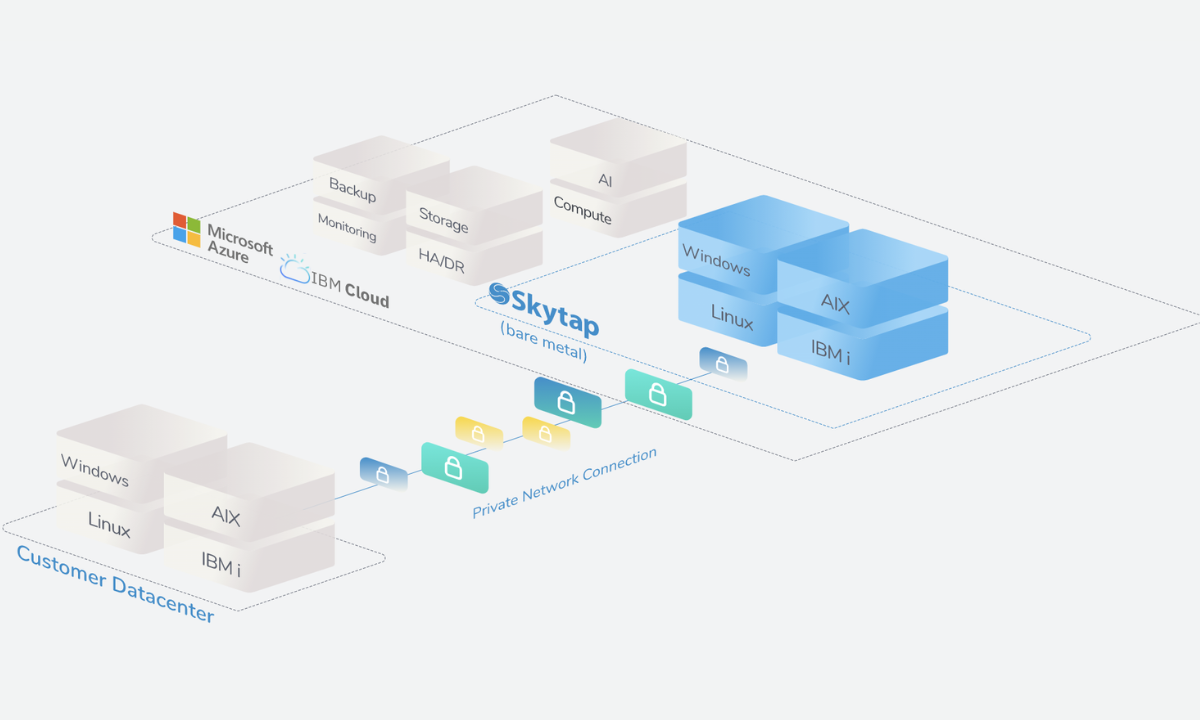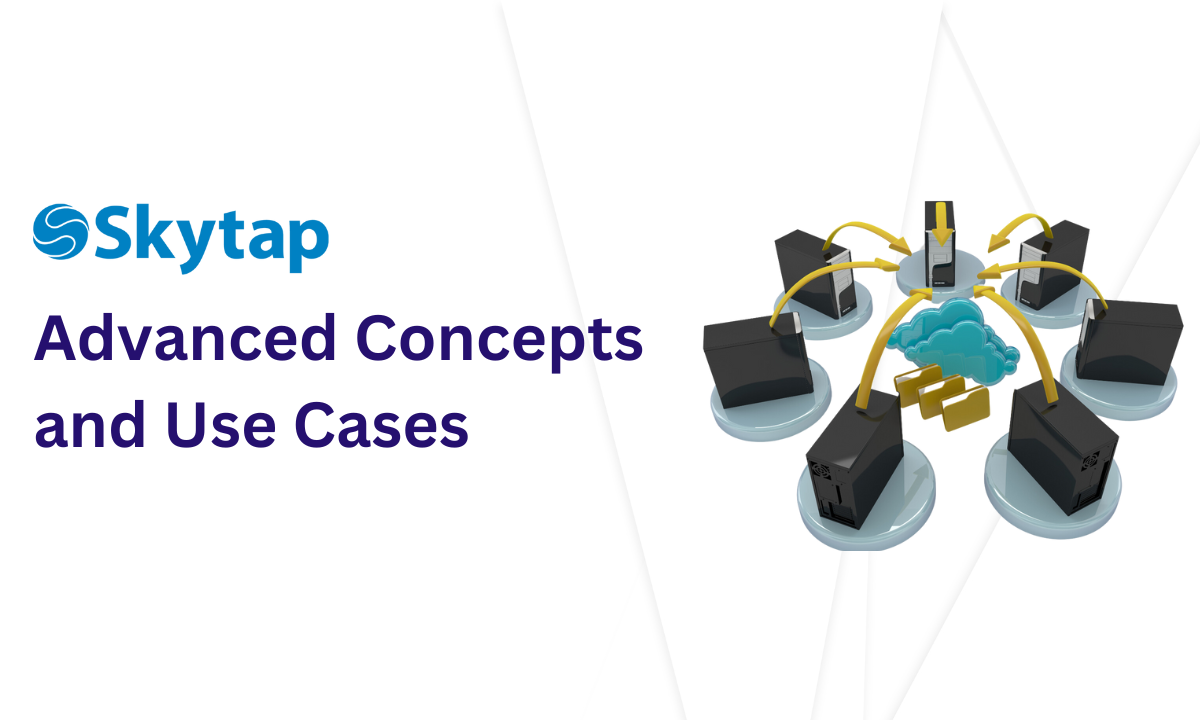As businesses increasingly transition to cloud-based infrastructures, understanding the intricate workings of platforms like Skytap becomes essential. This blog delves into the advanced concepts of Skytap, exploring its architecture, unique features, and the diverse range of solutions it offers to complex IT challenges. In particular, we’ll highlight how Skytap’s hybrid cloud architecture, automated environment provisioning, and advanced networking capabilities empower organizations to modernize legacy systems, ensure business continuity, and enhance development operations. Furthermore, we’ll integrate key industry certifications like AWS Certified DevOps Engineer and Microsoft DevOps certification to emphasize the value of expertise in these technologies. Additionally, for those looking to expand their skill set, DevOps training with placement can significantly enhance career prospects and operational efficiency in today’s tech landscape.
Advanced Concepts of Skytap

Hybrid Cloud Architecture
Skytap’s core strength lies in its ability to seamlessly integrate on-premises infrastructure with public cloud services, creating a robust hybrid cloud architecture. This capability allows businesses to:
Migrate Legacy Applications: One of Skytap’s primary benefits is the ability to transition older, often mission-critical applications to the cloud without complete reengineering effort. Legacy systems can function within a modern cloud environment while retaining their core architecture.
Maintain Data Sovereignty: Skytap’s hybrid cloud allows organizations to keep sensitive data on-premises, in compliance with data sovereignty laws, while leveraging the public cloud for scalable, non-sensitive workloads.
Optimize Resource Utilization: Businesses can significantly reduce operational costs while maintaining performance during peak workloads by dynamically scaling cloud resources based on demand.
Organizations can further integrate Skytap on Azure, using Azure’s robust global infrastructure. The hybrid cloud architecture also supports collaboration among geographically dispersed teams, allowing seamless resource sharing.
Automated Environment Provisioning
Skytap excels in automating the provisioning of complex environments. This feature is a game-changer for organizations that require multiple, rapidly deployed environments for development, testing, or training.
Template-Based Deployments: Skytap provides predefined templates for various operating systems and application stacks. These templates allow IT teams to spin up environments tailored to specific applications or business requirements in a matter of minutes, ensuring faster time-to-market.
CI/CD Integration: Continuous Integration and Continuous Deployment (CI/CD) are essential in modern DevOps workflows. Skytap seamlessly integrates with popular CI/CD tools, enabling rapid and reliable software delivery. This is particularly beneficial for teams pursuing Microsoft DevOps certification or AWS-certified DevOps engineer training, as Skytap aligns with the principles taught in these certifications.
Advanced Networking and Security
Cloud security is paramount, especially for businesses handling sensitive customer data or operating in regulated industries such as finance or healthcare. Skytap’s networking and security features include:
Granular Access Controls: Organizations can define user roles and permissions, ensuring that only authorized personnel can access sensitive resources, whether they are running in Skytap on Azure or other infrastructure.
Encrypted Data Transmission: Skytap ensures secure data transmission between on-premises and cloud environments through encryption, maintaining compliance with industry standards.
Compliance Certifications: Skytap has attained various compliance certifications, making it a suitable choice for industries with stringent regulatory requirements. These certifications add a layer of trust and security, ensuring businesses that their data is secure.
Use Cases of Skytap
Disaster Recovery and Business Continuity
Skytap’s robust infrastructure supports comprehensive disaster recovery (DR) strategies, allowing businesses to minimize downtime and recover swiftly from any failures. DR becomes essential as companies increasingly rely on cloud infrastructure service providers.
Example: A retail company used Skytap to replicate its e-commerce platform in the cloud. During peak shopping seasons or in the event of outages, Skytap ensured that their systems stayed operational, preventing any disruption in customer service.
Development and Testing Environments
Skytap allows developers and QA teams to create isolated environments for testing new features or performing performance assessments without impacting production systems. This capability aligns with best practices in DevOps, making it a valuable tool for professionals working towards certifications like Azure DevOps certification.
Example: A software development firm utilized Skytap to create simultaneous testing environments, accelerating their development cycle and improving product reliability. This isolated setup enabled faster detection of bugs and performance issues.
Application Modernization
One of Skytap’s unique features is its ability to modernize legacy applications by migrating them to the cloud without the need for extensive rewrites or re-architecture. Companies can run traditional enterprise workloads, such as IBM Power systems, in the cloud with minimal disruption.
Example: An insurance company successfully transitioned its aging claims processing system to Skytap. This move improved scalability and performance while preserving the existing codebase, saving time and resources in the process.
Data Analytics and Big Data Processing
Skytap’s scalable infrastructure makes it an ideal platform for big data analytics. Organizations that process large datasets can take advantage of Skytap’s resources to efficiently manage and analyze their data.
Example: A marketing firm leveraged Skytap to analyze vast datasets on customer behavior. By utilizing Skytap’s computational power, they were able to run more targeted and effective marketing campaigns.
Solutions Skytap Can Solve
1. Legacy System Integration: Skytap allows businesses to integrate old systems with modern cloud services, providing a solution that doesn’t require a complete overhaul of legacy architectures.
2. Scalable Resource Management: Skytap’s infrastructure dynamically adjusts resources to meet the varying demands of workloads, ensuring optimal performance without overspending.
3. Enhanced Collaboration: Skytap offers development environments that are accessible to global teams, fostering collaboration across distributed locations and departments.
4. Regulatory Compliance: Skytap helps organizations meet regulatory requirements through secure, compliant cloud solutions.
Technical Architecture
Skytap’s architecture is designed for flexibility and scalability, making it a key player in the cloud infrastructure service market.
Skytap Cloud Platform: This platform is the core infrastructure that manages virtual machines, storage, and networking, providing a stable foundation for cloud workloads.
API Integration: Skytap offers extensive APIs that allow businesses to automate tasks, integrate with other tools, and customize their cloud environment.
Management Console: Skytap provides a user-friendly management console that enables businesses to monitor and configure their cloud environments easily.
Performance Optimization
Skytap ensures optimal performance through a combination of resource management and intelligent distribution:
Resource Allocation: Skytap allocates resources dynamically, ensuring that applications receive the computational power they need without waste.
Load Balancing: Workloads are distributed evenly across servers, preventing bottlenecks and ensuring high availability.
Monitoring and Analytics: Skytap provides continuous monitoring of system performance, offering insights that help businesses optimize resource usage and performance.
Future Trends and Skytap’s Evolution
Looking forward, Skytap is poised to integrate emerging technologies such as:
Artificial Intelligence and Machine Learning: AI/ML can be integrated to enhance automation and predictive analytics, driving more intelligent cloud solutions.
Edge Computing: As businesses increasingly require faster data processing and reduced latency, Skytap is exploring edge computing, bringing cloud capabilities closer to the data source.
Serverless Architectures: Skytap is also investigating serverless models, which offer more flexibility and cost-effectiveness by eliminating the need for businesses to manage their infrastructure.
Conclusion
Skytap stands as a versatile and powerful platform in the hybrid cloud ecosystem. Its ability to seamlessly integrate legacy systems with modern cloud services, robust security, and scalability makes it an invaluable tool for businesses navigating digital transformation. From automating development environments to ensuring business continuity, Skytap provides a comprehensive solution to complex IT challenges. For professionals seeking to deepen their expertise, Skytap’s alignment with certifications like AWS Certified DevOps Engineer and Azure DevOps certification further enhances its relevance in today’s cloud landscape.
Skytap Connecting Legacy Data Centers to the Modern Cloud World

